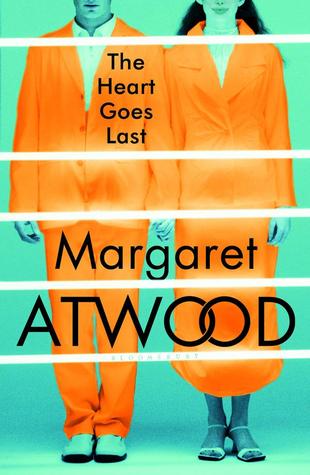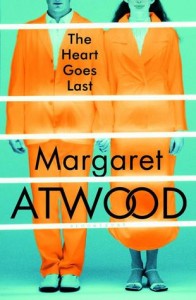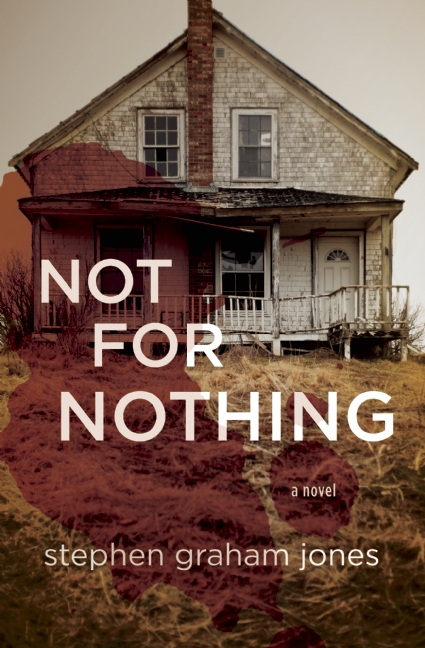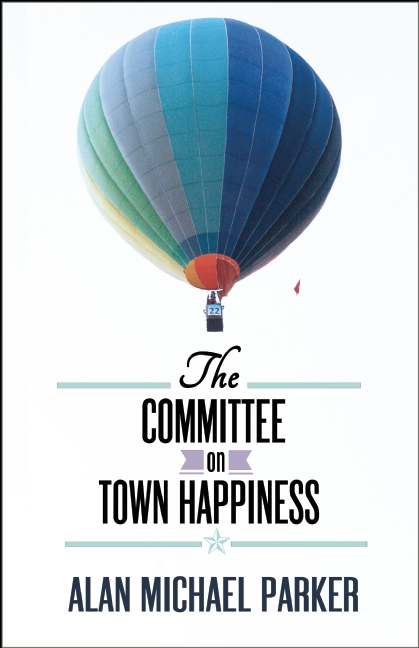Reviewed by Christine Gosnay
The Heart Goes Last, Margaret Atwood
Nan A.Talese/Doubleday
ISBN: 9780385540353
$26.95, 320 pages
A financial crisis and a government Ponzi scheme have left parts of America in very different stages of collapse in The Heart Goes Last, the latest novel from Margaret Atwood. Out west, things are all right. The northeast has taken a bigger financial hit, and characters Stan and Charmaine have lost their house and are living out of their car and eating stale donuts. Stan keeps the key in the ignition at all times in order to make a quick getaway if the car is assailed by gangs or rapists in the night. The young married couple rightly wishes to escape these circumstances by any means necessary; heading west is out of the question, they believe.
When Charmaine, who works part-time at a bar, is wiping down glasses, she sees a television commercial for the town of Consilience and the Positron Project; before long, Stan and Charmaine sign up for a lifelong commitment. Before they do, though, Stan’s brother warns them that the only way they’ll leave is in a box. This forewarning surely comes true. Stan comes out of Consilience in a shipping crate, disguised as an Elvis sex cyborg. In the crate next to him is a staggeringly beautiful woman errantly programmed to love and desire a small knitted bear; in this future, human sex engineering has found a foothold, but not quality control.
This novel is stitched together from serialized novellas, and the editing shows. Atwood tells us there are rich people in western America living on cities in the ocean; these floating robber barons have taken most of the jobs in the service industry with them to drift in their sea of untouchable wealth. The United States, then, with its still-functioning three-branch government and intact system of oversight, allows a private conglomerate to wall off a large town and sign people in, and never let them out, and lock them in prisons every other month.
To escape their privation and despair, and because of Charmaine’s irrepressible desire to shower and to own towels, Stan and Charmaine go to live in Consilience town, where citizens spend one month in a lovely home and the next in the benign Positron prison, alternating forever between their homes and their jails. While they’re in jail, another couple, the “Alternates,” lives in the home, and vice versa. Why would anyone agree to this, and why does it exist at all? It’s confusing, so to help the reader suspend disbelief and to set the plot in motion—the one that requires Stan and Charmaine to switch from home to jail every month—Atwood throws an emotional spitball instead: the executives in charge of the Positron Project are drawn as irredeemable, greedy, lecherous men. Thinks Stan, “Some folks must be making a shitload of cash out of this thing. But who, but where?” Even if this were ever explored in earnest, it would not satisfy a reader’s overwhelming desire for an explanation for the alternating structure of Consilience/Positron.
In Consilience, a bedspread-and-towel-catalogue utopia irresistible to Charmaine, residents ride scooters everywhere. On the days when prisoners and Alternates switch off, Charmaine starts scootering around and meeting up with Stan’s Alternate, Max. They have an affair punctuated by bits of animalistic dialogue like “I’m starved for you,” an affair that’s defined by “Helpless moaning. All of that.” Soon, Stan falls in love with a piece of paper Charmaine signs with a fuchsia kiss that he thinks is from someone named Jasmine. Jasmine is really Charmaine, leaving a note for Max. Stan is swiftly made into Jocelyn’s (Charmaine’s Alternate) sex slave. Jocelyn forces him to watch grainy videos of Charmaine and Max having sex, then act them out with her, night after night.
Stan is understandably upset with Charmaine and he isn’t attracted to Jocelyn, though we are told again and again that she has really terrific legs, and that she wears gray stockings. Stan can’t wait for Charmaine to get stuck with Max every day as he is with Jocelyn, because “a quick hit of supercharged nooky snatched on the run is not at all the same as all day every day.” Whenever I reflect on the uncontainable desires that have punctuated my life, I will keep “supercharged nooky” in mind.
Jocelyn deploys Stan as the lynchpin in her elaborate plot to expose the horrors of Positron. In Positron, they are killing undesirable prisoners (Charmaine has this job, in fact), harvesting organs, making sex bots, and so forth. When Charmaine learns her own pivotal role in this coup, which involves a fate worse than loveless marriage, she wrinkles her nose and says “That so totally sucks.”
The Heart Goes Last is described as speculative fiction, which Atwood has defined as “stories set on Earth and employing elements that already exist in some form, like genetic engineering, as opposed to more wildly hypothetical science fiction ideas like time travel, faster-than-light drives, and transporters.” Science fiction, she says, “is rockets, chemicals and talking squids in outer space.” The distinction she draws is easy to understand: speculative fiction could really happen, now or soon, on this planet where we live. Atwood has always focused on creating sudden and violent near-futures for us to imagine as pan-realistic mirrors of our own present. Vital to her imagination, in her novels, is the individual human consequence—not the cause—of these downward-spiraling futures.
On Earth in 2015, we are free from talking squids, but much is clearly wrong in the realm of talking humans. It is thrilling, even soothing, to read parts of a book like Stephen King’s The Stand or Cormac McCarthy’s The Road, because when something is wrong with your world, reading about different (but realistic) and even more urgent, frightening, and extreme problems satiates a desire for the primal sense of contextual resolution that only good storytelling can provide.
The Heart Goes Last is not a book that focuses on storytelling, and the disappointment is nearly complete. Even the most basic human rights issues are undermined by a scant consideration of science and of the intricacies of how a society as large as America’s operates. The grip on the continuum of human behavior and especially on feelings of love and desire gets slippery, even wild and uncontrolled.
I’ll point out a few problematic aspects of the writing itself. There are phrases like “The night before New Year’s Day” and “Some beam-me-up-Scotty slight [sic] of hand” and “a brain-dead trashbunny” and “Listen up, he tells his dick silently. Keep it zipped.” There are words like “fluffpot,” “indentured studmuffin,” and “galvanized frog.” There is often mention of “dimpled blond astonishment.” At one point, Stan is concerned that some fellow Elvis impersonators are gay. “How can he tell them he’s straight as a Kansas highway without sounding rude?” This, like the aforementioned diction, is a flavor of linguistic thought that many of Atwood’s readers might find unacceptable.
Little is left to the imagination: feelings and urges are described past the brink of exhaustion. This is particularly characteristic of Stan’s thoughts. At one point, he wonders “Who’d want to fuck a hundred-year-old woman with tubes all over her and her insides leaking out?” Moments later, an incidental character says “No one wants to be fucked to death.” Discerning readers will agree.
Sadly, the most frustrating failure of this story is an ancient one; women’s issues begin and end with men. The women in The Heart Goes Last are either helpless, or they pretend to be helpless, for sexual and professional gain. Intelligence maintains an inverse relationship with compassion in Charmaine and Jocelyn; I find this difficult to stomach. Jocelyn is Atwood’s gesture toward a strong female tritagonist, but she is not supported by language or thought processes sophisticated or nuanced enough to propel her and her schemes all the way into the mind of a reader. Her expression, her dialogue, and her motivations are purely expository. They are never introspective.
Buried in The Heart Goes Last is the sincere desire to comment on how technology affects the nature of human love and attachment, and the hint of a discussion of the “infinitely suggestable” scope of the mind that would have captivated any reader. Also buried here is a skilled and observant writer, capable of distinguishing a character with “such guileless teeth: asexual teeth, nothing fanged.” Atwood is also capable of evoking the concern so many of us, in our squid-free world of relative comfort, struggle to vocalize. That concern has to do not just with freedom and dignity but with the right to be forgotten, and it surfaces beautifully, once, halfway through the book.
He shouldn’t have let himself be caged in here, walled off from freedom. But what does freedom mean anymore? And who had caged him and walled him off? He’d done it himself. So many small choices. The reduction of himself to a series of numbers, stored by others, controlled by others. He should have left the disintegrating cities, fled the pinched, cramped life on offer out there. Broken out of the electronic net, thrown away all the passwords, gone forth to range over the land, a gaunt wolf howling at midnight.
Christine Gosnay is the founding editor of The Cossack Review and lives in California. Some of her writing appears in POETRY, Sugar House Review, Vol. 1 Brooklyn, Linebreak, The Morning News, PANK, and DIAGRAM. Find her on twitter at @dagny.





